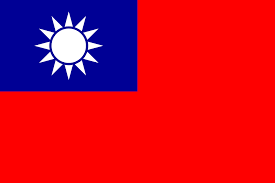Bad poll numbers: Taiwan's ruling party votes to replace presidential candidate
Taiwan's ruling pro-Beijing Kuomintang (KMT) party moved to nominate its chairman as the party's new bid for the 2016 presidential election, replacing its former candidate who had been facing increasing setbacks in polls.
At a partywide interim meeting Saturday afternoon, 812 out of 891 KMT members present voted in favor of rescinding the nomination of Hung Hsiu-chu -- currently the vice president of Taiwan's parliament, the Legislative Yuan -- who has been struggling in polls. The meeting moved to nominate Eric Chu -- chairman of KMT -- to represent the party in hope of bringing back momentum for the 2016 election.
In a brief statement posted on KMT's website, the party thanked Hung for her contributions to the party and said the decision was made due to "electoral downturn."
A poll released this week by Taiwan Indicators Survey Research found Hung getting support from only 15.6% of surveyed voters, compared with 46.8% for Tsai Ing-wen, the candidate representing the main opposition Democratic Progressive Party, which traditionally has maintained Taiwan's political independence from Beijing.
Much of the fanfare surrounding the next election had been on the rivalry between Hung and Tsai, two female politicians who have contrasting styles in the eyes of analysts. Since its founding in 1911, Taiwan has not had a female leader.
The latest poll suggested Hung is barely beating James Soong, candidate from the People First Party, which holds a small minority in the government.
In a speech afterwards, Hung questioned the party's "legitimacy" and "legality" in dismissing her nomination, calling it "highly controversial." She, however, went on to accept the decision and appealed for unity within the party months before the election.
KMT released a statement later saying, "Feedback and poll results have both shown that KMT must adjust its steps and re-start the journey. We cannot witness our party walking into the history and all of our comrades losing elections without making an effort to fight back.
"This is KMT's moment of survival instead of power jockeying or benefit seeking."
The new candidate, Chu, had previously been publicly against running for presidency, citing his commitment both as the KMT chairman as well as the mayor of New Taipei municipality. On his Facebook page Saturday evening, Chu said he has decided to accept his party's nomination this time, adding that he can't put his personal interests before the party's.
Taiwan -- officially the Republic of China while the mainland is formally known as People's Republic of China -- has maintained its own political system on the island across the Taiwan Strait since 1949, when Chinese Nationalist forces lost the civil war to the Communists in the mainland.
Cross-strait relations had long been the point of contention between Taipei and Beijing, though there have been signs of improvement in recent years.
Elections in Taiwan have always been closely watched inside mainland China. Views are often divided among Taiwanese politicians and the public. While some insist the island government is better off enjoying a close relationship with the mainland, others are worried about potential jeopardy to Taiwan's democracy brought on by Beijing's influence.
News Courtesy: www.cnn.com











